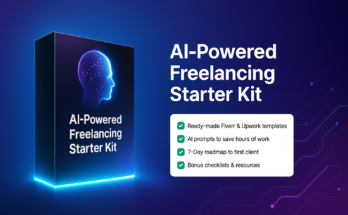Mental health and well-being have always been important concerns for individuals. However, with the ongoing pandemic and the resulting social isolation, anxiety, depression, and other mental health disorders have become more prevalent than ever.
Fortunately, technology has provided us with innovative ways to manage and improve our mental health.
One such technology that has been gaining popularity is ChatGPT, a chatbot designed to improve mental health and well-being. In this article, we will discuss how ChatGPT can help with mental health, its positive impact, and how it can be used by students.
Table of Contents
- What is ChatGPT?
- How Does ChatGPT Work?
- What Chatbot Helps with Mental Health?
- Can You Use ChatGPT for Therapy?
- What Will ChatGPT Used for?
- What is the Positive Impact of ChatGPT?
- How Does ChatGPT Help Students?
- How to Use ChatGPT to Improve Mental Health?
- How to Get the Best Results from ChatGPT?
- ChatGPT vs. Traditional Therapy
- Potential Drawbacks of Using ChatGPT
- Conclusion
- FAQs
What is ChatGPT?
ChatGPT is a chatbot power by OpenAI’s GPT technology. It is an artificial intelligence-based conversational agent that interact with humans via chat or voice. The primary purpose of ChatGPT is to improve mental health and well-being by providing individuals with a virtual assistant that can listen, provide guidance, and offer coping mechanisms for mental health issues.
How Does ChatGPT Work?
ChatGPT uses natural language processing (NLP) to understand and respond to user queries. It is trained on a vast corpus of data, which includes information on mental health, well-being, and coping mechanisms. Users can interact with ChatGPT via various messaging platforms, such as Facebook Messenger, WhatsApp, and Slack. Once a user initiates a conversation with ChatGPT, it analyzes the user’s query and generates a response that is appropriate to the context.
What Chatbot Helps with Mental Health?
ChatGPT is an AI-powered chatbot designed to improve mental health and well-being. It can help with a range of mental health issues, including anxiety, depression, stress, and trauma. The chatbot can provide users with coping mechanisms, self-care strategies, and personalized support.
Can You Use ChatGPT for Therapy?
ChatGPT is not a substitute for therapy or professional mental health treatment. However, it can be used as a complementary tool to help individuals manage their mental health and well-being. ChatGPT can offer guidance, support, and coping mechanisms to individuals experiencing mental health issues. It is also a great resource for individuals who may not have access to professional mental health services due to financial, logistical, or social reasons.
What Will ChatGPT be Used for?
ChatGPT has the potential to be used in various domains, including healthcare, education, and customer service. In healthcare, it can be used to assist healthcare providers in triaging patients, monitoring symptoms, and providing mental health support. In customer service, it used to improve customer experience and provide instant support to customers.
What is the Positive Impact of ChatGPT?
ChatGPT has several positive impacts on mental health and well-being. Firstly, it provides individuals with a safe and non-judgmental environment to discuss their mental health issues. Secondly, it offers personalized support and coping mechanisms that are tailored to the individual’s needs. Thirdly, it is accessible to anyone with an internet connection and a device that can access messaging platforms.
How Does ChatGPT Help Students?
Students face various mental health challenges, such as academic stress, social anxiety, and depression. ChatGPT can be a helpful tool for students in managing their mental health and well-being. The chatbot can provide personalized support, offer coping mechanisms for stress and anxiety, and assist students in developing healthy habits. It can also provide academic support, such as study tips, time management strategies, and motivation techniques.
How to Use ChatGPT to Improve Mental Health?
To use ChatGPT to improve mental health, users can initiate a conversation with the chatbot via messaging platforms such as Facebook Messenger, WhatsApp, or Slack. They can then type in their query or concern, and the chatbot will generate a response. Users can also ask the chatbot for personalized support and coping mechanisms for their specific mental health issue.
How to Get the Best Results from ChatGPT?
To get the best results from ChatGPT, users should be specific about their mental health concerns and provide as much detail as possible. This will help the chatbot generate a personalized response that is tailored to the user’s needs. Users should also be honest and open with the chatbot about their mental health issues, as this will help the chatbot provide more effective support.
ChatGPT vs. Traditional Therapy
ChatGPT is not a substitute for traditional therapy or professional mental health treatment. However, it can be a complementary tool that can provide individuals with support and coping mechanisms. Traditional therapy involves face-to-face interaction with a mental health professional, which allows for more personalized and in-depth support. ChatGPT, on the other hand, provides more accessible and convenient support that can be accessed from anywhere and at any time.
Potential Drawbacks of Using ChatGPT
One potential drawback of using ChatGPT is that it may not be able to provide effective support for individuals with severe mental health issues. In such cases, professional mental health treatment may be necessary. Another potential drawback is that the chatbot may not always provide accurate or appropriate responses. However, this can be mitigated by training the chatbot on a diverse range of data and ensuring that it is regularly updated and monitored.
Conclusion
ChatGPT is an innovative tool that can help individuals manage and improve their mental health and well-being. It provides accessible, personalized, and convenient support that accessed from anywhere and at any time. While it is not a substitute for professional mental health treatment, it can be a valuable complementary tool for individuals experiencing mental health issues.
FAQs
- Is ChatGPT free to use?
Yes, ChatGPT is free to use. - Can ChatGPT provide a diagnosis for mental health issues?
No, ChatGPT is not designed to provide a diagnosis for mental health issues. It can provide support and coping mechanisms for mental health concerns. - Is ChatGPT available in all languages?
ChatGPT is currently available in English only. However, OpenAI is working on developing multilingual versions of the chatbot. - Can ChatGPT replace traditional therapy?
No, ChatGPT is not a substitute for traditional therapy or professional mental health treatment. - Is ChatGPT a reliable source of mental health information?
While ChatGPT provides information on mental health and coping mechanisms, it is important to verify this information with professional mental health sources.



